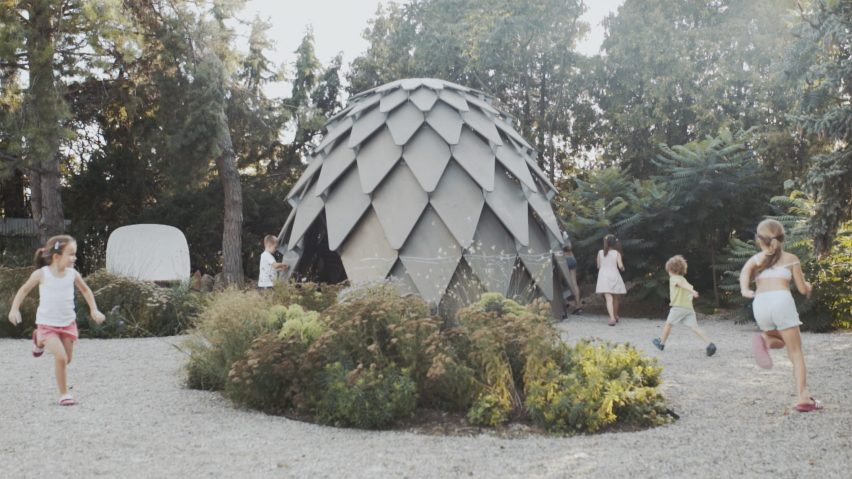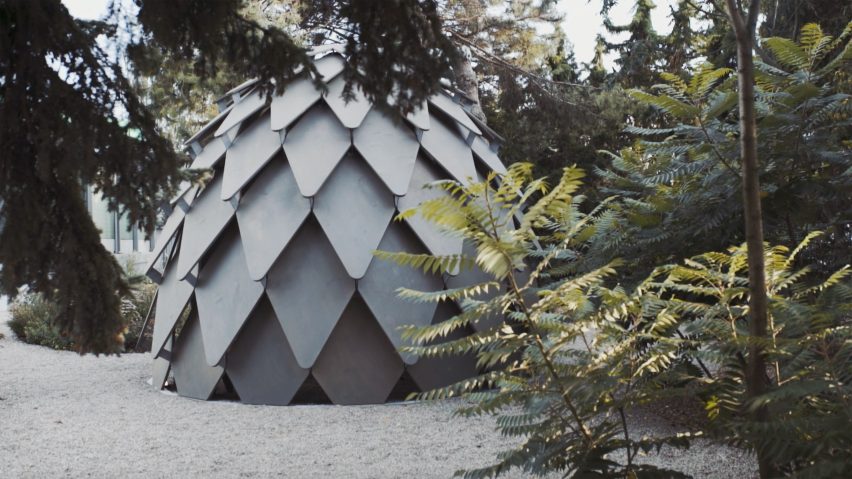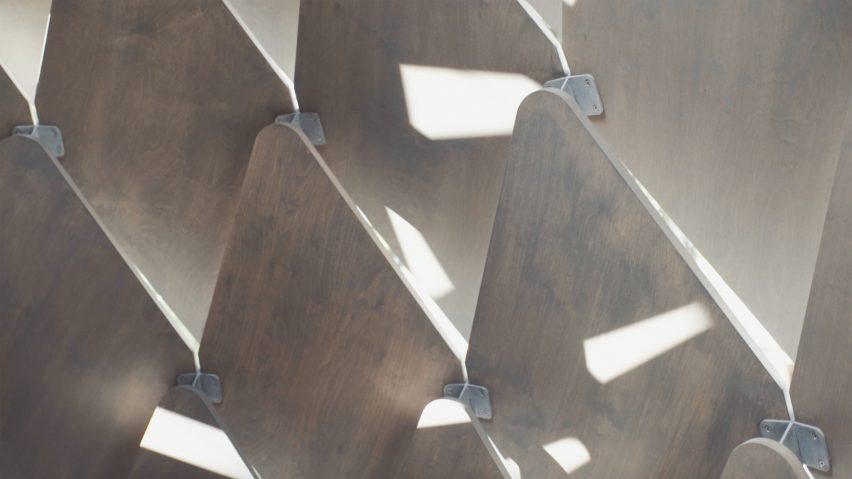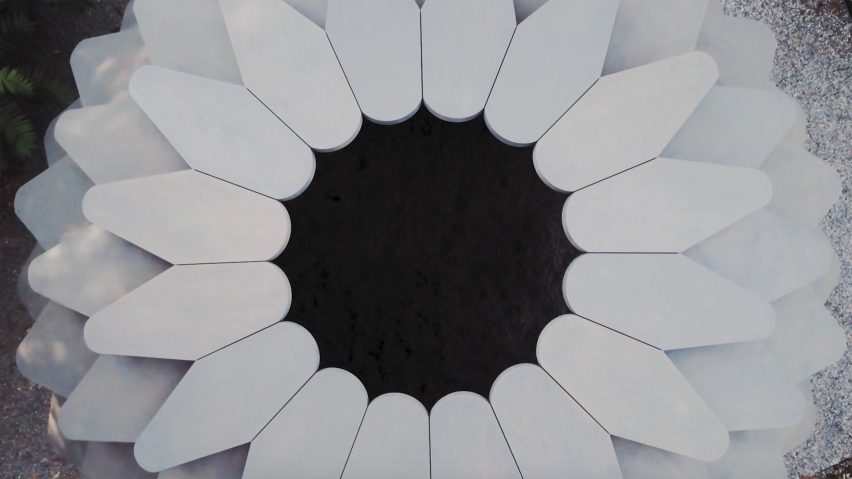Pinecone-shaped pavilion can be used for outdoor classes and campfires
Czech designers Atelier SAD and Mmcité1 collaborated on the design of this mobile gazebo, which is covered in plywood scales that lend it the appearance of a pinecone.

Fittingly called Pinecone, the portable structure provides a shaded spot for public places. It is designed to be used as a place for children to play, as an outdoor classroom, space for relaxation, or to light a campfire. The structure can be moved and re-formed on the same day.
The self-supporting structure is formed of 109 waterproof plywood scales connected together with galvanised joints. Slots between the scales provide natural ventilation, while a hole in the roof allows smoke to escape.
Each plywood scale is angled so as to shelter and shade the occupants from the elements, while the weather-resistant coating prevents it from degrading over time.

"During the design process we were aiming to smash boundaries and move forwards. The Pinecone project was a big challenge for us, because it was more than just a one-dimensional product," said Mmcité designer David Karásek.
"It is on the cutting edge of architecture and design, and can even serve as a meditation space," he added.

Mmcité1 is a street furniture designer and supplier based in Bílovice, and Atelier SAD an architecture and design practice based in Prague. The studios previously collaborated with the Martin Papcún to design a sunken memorial in the shape of an upside down house in a Munich square.

The aesthetically pleasing shape and natural weather-resistance of pinecones makes them a popular source of inspiration for architects and designers working on out-of-doors projects.
Architect Claudio Beltrame built a treehouse in the shape of a pinecone in the Italian Alps, suspended 10 metres off the ground and accessible via a bridge.
For a woodland trail centre in Sweden, local architecture firm Tengbom covered the structure in pinecone scale-style shingles. Inflatable pinecone-topped guesthouses were a central part of 3Gatti Architecture Studio's unrealised vision for an eco-resort in a Latvian forest.